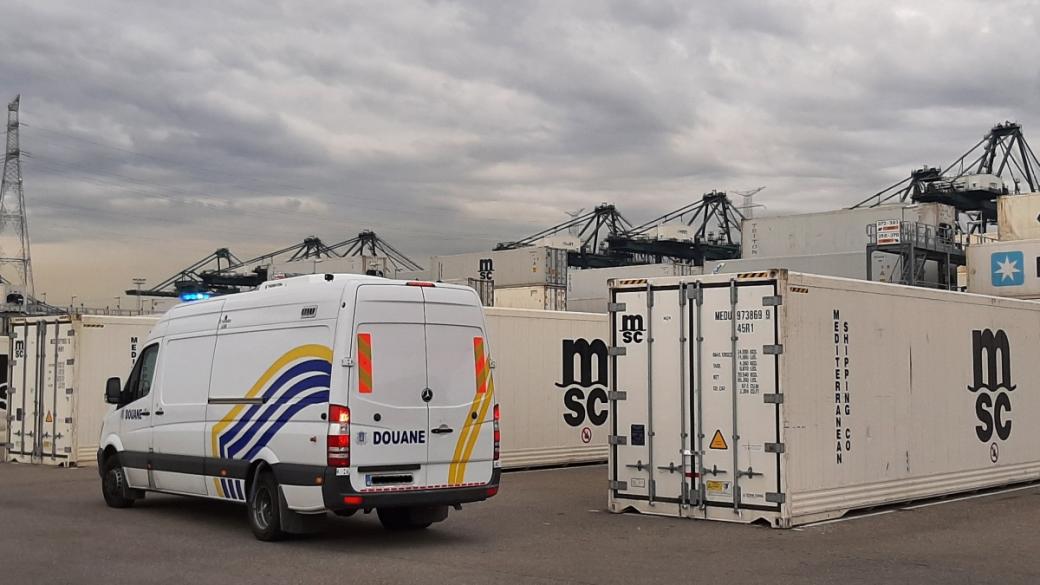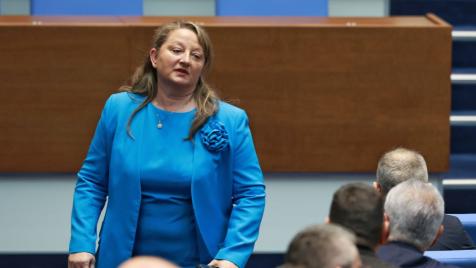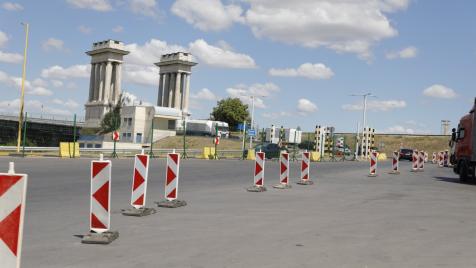European customs reform: what will change?
Online trade is coming under the spotlight in Brussels, with the changes envisaging major websites selling goods becoming EU importers

© ECONOMIC.BG / TAXUD/ Port of Antwerp
A few weeks ago, the European Commission announced the biggest and most ambitious customs reform in half a century. And while many would think that the historic change and tightening of rules is being done now to limit Russia's ability to circumvent Western-imposed sanctions on imports and exports of goods using third countries, the Commission points out that the measures were conceived long before the war in Ukraine.
Better control of sanctions will only be a bonus. In fact, the aim is to improve control over the customs duties and VAT charges levied on imports of goods, as they are increasing at a huge rate as a result of the pandemic, the boom in online trade, but also the changed geopolitical situation. Last year alone, more than 1 billion declarations passed through EU countries' customs, but it is not certain that all taxes on goods are duly paid, according to official figures from the Taxation and Customs Union Directorate-General (TAXUD) presented at a special seminar on the subject to European journalists in Brussels. Economic.bg was the only Bulgarian media present.
The reform will cost approximately €2 billion to be fully implemented by 2034. The EU collects around €25 billion annually from customs duties and €55 billion from VAT. However, much of this money is lost to customs fraud, which Brussels now wants to crack down on. In addition, goods below EUR 150 are not subject to customs duty but only to VAT, which is an additional loss.
In addition to the financial losses, Brussels hopes that the new reform will also improve controls on imports of smuggled and dangerous products, as well as drugs and weapons.
It is time to take the customs union to the next level, equipping it with a more robust framework, I will propose a bold package for an integrated European approach to strengthen customs risk management and better control by member states," says EC President Ursula von der Leyen as early as 2019.
What will change?
The new reform envisages the creation of a new €1 billion data hub to replace existing customs systems in member states, so that all information on the movement of goods is collected in one place that all member states can access.
This is necessary as the 27 Member States currently use 111 separate IT systems. The bloc has no central database and so there is no oversight of the overall supply chain. The customs data hub in question would provide full control over everything that enters or leaves the EU.
Brussels wants to unify and simplify administrative procedures for businesses. Importers currently submit multiple and different declarations according to the different requirements of the countries into which they import their goods.
The new reform provides for simplification of procedures for importers. They will submit the goods data online, namely in the new data hub. They will be able to submit customs information once for multiple shipments. The most trustworthy traders and those who provide the most complete and transparent information will be given a special "Trust and Check" status.
The advantage is that they will be able to release their goods without active customs intervention, and the place of import may be different from the place where they are established. The status in question will take effect from 2028 for online trading platforms and from 2032 for other business entities. All other traders without it will remain subject to verification and control.
All importers will have to produce a certificate from the manufacturer to prove that they have no problems with their goods. However, since not every trader can inspect a factory in Africa, for example, they will have to pay someone else to certify and vouch for the production at the factory.
Online trade is also coming under Brussels' radar. The biggest change that the reform will bring is that it will remove the threshold at which goods under €150 are exempt from duty. The EU loses revenue from this, with 65% of shipments being entered at a lower value than the actual value.
Against the backdrop of growing online trade, according to TAXUD, 66% of products ordered online do not meet the security criteria and so citizens are not protected. It is to change this that the major sales websites will now be responsible for the goods they sell, rather than simply linking a seller to customers.
The aim is for these large websites to become official importers and not just intermediaries, passing the buck to the seller or carrier. The online platforms in question will have to ensure that, when ordering, customers pay all customs duties and VAT so that there are no additional charges when the products arrive.
The reform also provides for easier calculation of duties payable on goods purchased from outside the EU via online trading platforms. At the moment there are a variety of duty categories and the reform will reduce them to 4:
- 5% (e.g. on toys, games, household items);
- 8% (e.g. for silk products, carpets, glassware);
- 12% (e.g. cutlery, electrical machinery);
- 17% (e.g. for footwear);
- Goods currently at 0% duty will continue to benefit from this.
Prices and terms
Currently national borders are not protected and once in, goods can move freely around the EU. The reform would create a single customs border with centralised oversight and common risk management.
The central data hub would save the EU €1-2 billion a year. Costs for traders should fall by around €2 billion a year. Tightening online trade will bring an additional €2 billion.
Brussels officials hope the reform can be adopted in full by 2025, although new parliamentary elections could create some delays. The changes have already been discussed and presented to member states, and are meeting support.
The changes will happen gradually over the years, with customs declarations becoming history by 2037 and individual countries' IT systems ceasing to function. From 2028, measures for large online platforms and traders should come into force. From 2032, all traders with "Trust and Check" status will have to start using the data centre. It will be mandatory for all traders from 2038.
Why now?
In 2022 alone, 546.8 million products were declared for import and 562.8 million for export. Revenues are worth €33.6 billion from import taxes, with €25.2 billion transferred to the EU budget, according to TAXUD data. There are 1870 customs offices operating across the EU, with over 82 thousand staff.
The ability to control and enforce which goods enter and leave the EU Customs Union is of strategic importance. Customs are also the guardians of the single market."
EU officials say that despite digitalisation, no staff will be cut. Their work will be simpler and they will work closely with institutions and law enforcement agencies.
The reform aims to eliminate security risks and stop the import of goods such as dangerous replicas for human health, cigarette smuggling, arms and drug trafficking, etc. TAXUD officials point out that "by increasing controls in just one place somewhere along the EU's borders, the trafficking of such illegal products is directed elsewhere. Because of this, to close this vicious circle, all EU customs must work as one."
In 2022, customs seized 508.9 tonnes of drugs, over 1 900 firearms, over 5.8 million pieces of ammunition and 205 thousand pieces of explosives. There were over 34 thousand cases of transport of dangerous goods posing a health risk. There were over 2 700 violations of the Convention on International Trade in Endangered Species of Wild Fauna and Flora (CITES), according to TAXUD data.
In addition to direct control by customs officials, follow-up is carried out by the European Public Prosecutor's Office, to which any citizen can send reports directly on customs and VAT fraud, money laundering, misuse of EU funds and much more. In 2022, there are 1,117 active investigations in the EU, with potential damages worth €14.1 billion. There are 87 indictments and 20 convictions.
The European Anti-Fraud Office (OLAF) also monitors for irregularities. In 2022, 192 investigations were opened and 256 closed. Prevented for misspending are €197.9 million and €426.8 million to be recovered from the EU budget countries.




